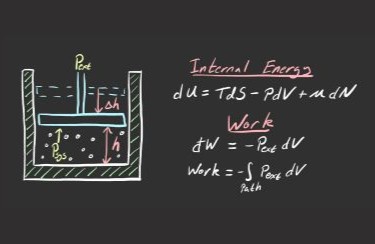Chemical Thermodynamics I: Thermodynamics and Statistical Mechanics
Develop an understanding of fundamental thermodynamic principles and how they arise from molecular scale system properties.
Develop an understanding of fundamental thermodynamic principles and how they arise from molecular scale system properties.
Develop an understanding of fundamental thermodynamic principles and how they arise from molecular scale system properties.
This online course is the first in a series of two thermodynamics courses from the MIT Department of Chemistry. Together, they cover chemical thermodynamics, statistical mechanics, phase equilibria, and kinetics.
Undergraduate General Chemistry recommended; Multivariable Calculus such as 18.02.1x



